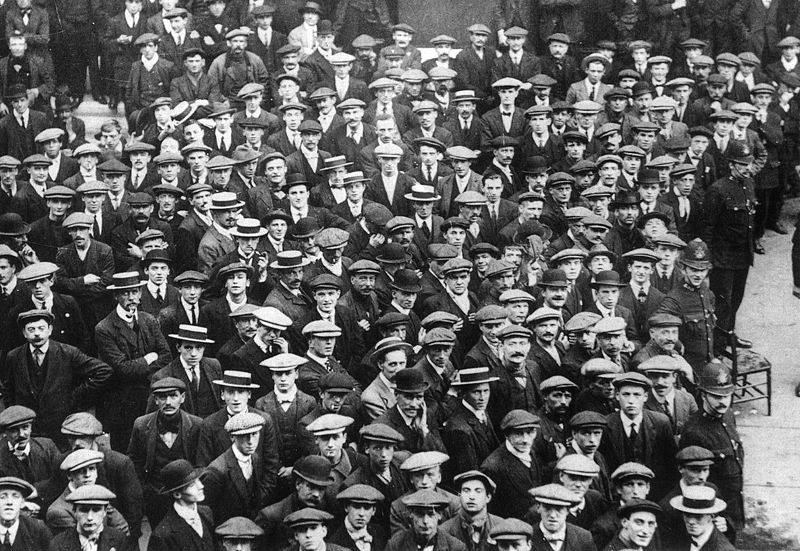How did World War I affect your family’s lives? Start your search with these 3 tips for finding WWI ancestors. 
Our current Genealogy Gems Book Club title takes place at the outset of WWI. The Summer Before the War: A Novel
by Helen Simonson has endearing characters who experience fairly light-hearted dramas–and then they are plunged into war.
Through their eyes, readers begin to understand that those who lived through ‘the Great War’ experienced something totally unprecedented. There had never been such a massive loss of life and devastation.
1. Ask family what they know. Ask all living relatives what they know about ancestors’ involvement in World War I. Listen for stories about anyone who may have served in the military, dodged military service, took care of things on the homefront, lost their own lives or loved ones or lived in an area affected by the war. Ask about any old documents, photos or letters that may survive.
There are lots of ways to ask your relatives these questions. Poll everyone at your next family gathering or reunion. Use Facebook (click here for some great tips) or other social media. Connect with other tree owners who have documented ancestors of WWI interest (see step 2, below) through communication tools provided at sites such as Ancestry.com, MyHeritage.com and FamilySearch.org.
2. Identify ancestors affected by WWI. Look for families and individuals who were alive between 1914 and 1918. Where did they live? Was it an active war zone? Research local histories and maps to determine how their city–or even neighborhood or property–was affected. Scan death dates on your family tree–did anyone living in a war zone die during that time period?
Were they in a country that sent troops to war? If so, look for soldiers on your tree. The age of those who served in World War I varied. In general, look for men born between 1880 and 1900 who were alive in 1914. Again, look for death dates during the war.
3. Search military records on genealogy websites. Fold3.com’s WWI landing page is the place to start for WWI ancestors in the U.S., since it specializes in military records (you may be able to access it from your home library). Ancestry.com users can go to this landing page to search all WWI records from the U.S. and here to search U.K. records. Findmypast.com users can search WWI records here, including an extensive collection of British military records but also others from around the world. If you’re searching U.S. records, remember that draft registrations are not records of military service.
If you’re looking for a country or region not represented in these online collections, start Googling! Google search phrases such as “Germany WWI genealogy” will bring up results like these. (Click here to watch free video tutorials about Google searching for genealogy records.) You may discover new databases online or records collections you could access through archives or libraries.

Available at http://genealogygems.com
These tips are just to get you started. As you discover records, you’ll have a better sense for the stories of your WWI ancestors. Then you can start chasing those stories in newspapers, local histories and other sources. Turn to a book like Lisa Louise Cooke’s How to Find Your Family History in Newspapers to learn

British volunteers for “Kitchener’s Army” waiting for their pay in the churchyard of St. Martin-in-the-Fields, Trafalgar Square, London. August 1914. Wikimedia Commons Image
sleuthing skills you’ll need for searching out your WWI family stories in the news.
More WWI Genealogy Gems for You
Europeana World War I Digital Archive




